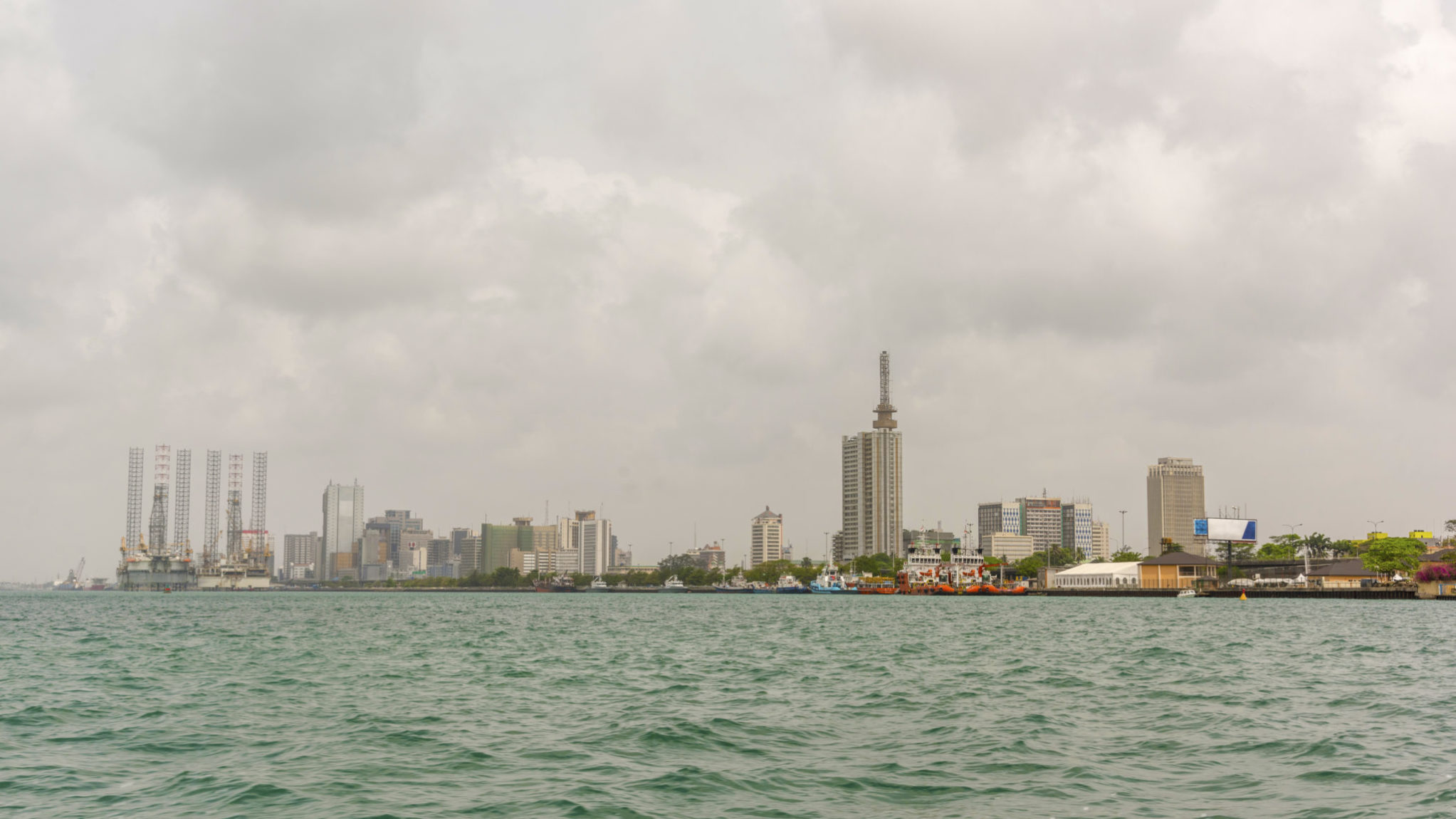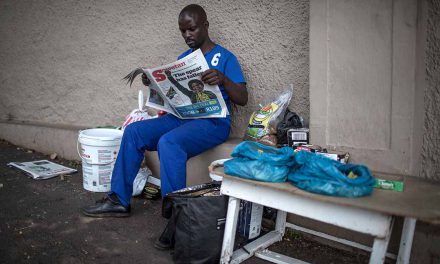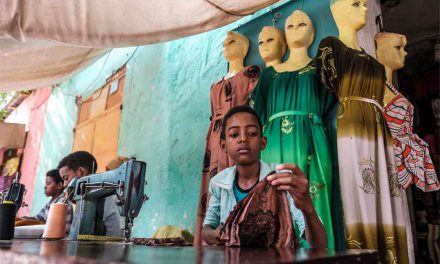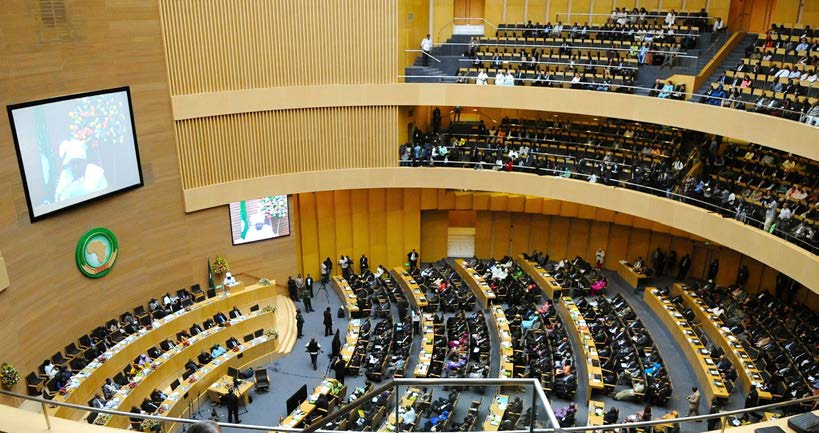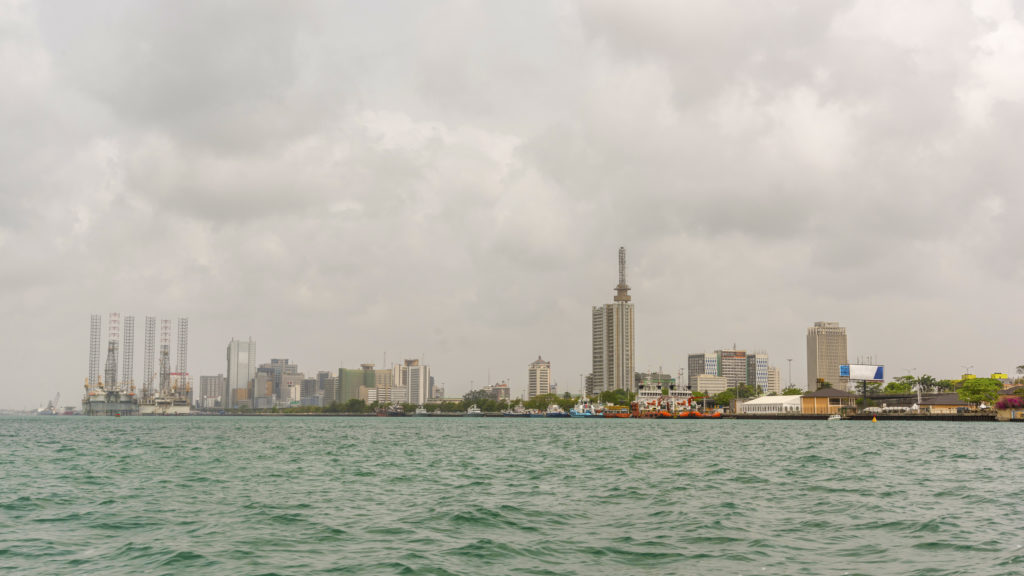
Skyline of Lagos, Nigeria. ©Getty Images
With the right policies, legislators could harness the potential of the Nigerian informal economy
The informal economy can be understood to be the part of an economy that is neither taxed, nor monitored by any form of government. Unlike the formal economy, the activities of the informal economy are not included in the gross national product (GNP) or the gross domestic product (GDP) of a country.
Across Africa, the informal sector is widely perceived as a source of employment and livelihood for many people. Yet the sector fulfils many other economic functions, and this underlines the need for governments, through their various regulatory agencies, to engage stakeholders in the sector. This would help to create a more efficient environment in which informal businesses can thrive, contribute to expanded job creation and public revenues, and gradually move up into the formal economy as key economic drivers.
According to a 2004 study by Kristina Flodman Becker, writing as a consultant for the Swedish International Development Agency (Sida), the growth of the informal sector in many sub-Saharan African countries – including Nigeria in the last three decades – is traceable to several factors.
These include: limited absorption of surplus labour by the formal sector; entry barriers to the formal economy; little or non-existent regulation of informal businesses, paving the way for easy entry and operations; the prospect of dealing with stringent tax laws and administration in the formal sector; policies that favour capital over labour; continued or growing demand for low-cost goods and services; and economic hardship and poverty, among other factors.
The Nigerian economy was predominantly rural and agrarian during the years before and after independence. Most economic activities were mainly carried out by individuals and smallholder enterprises, which typically were not formally registered. Cash cropping with cash crops such as palm, groundnut and cocoa dominated this agrarian economy. Other sectorial activities covered mining of raw materials such as tin ore, columbite and zinc, which contributed to foreign exchange earnings, according to a 2005 study by William Akerele, an economist.
A 1996 study by Dele Olowu and Olu Okotoni, both professors of public administration at Obafemi Awolowo University, described two major components of the Nigerian informal sector: economic/financial activities and administrative/political activities.
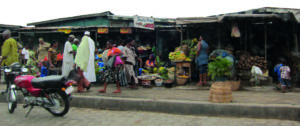
Lagos market, 2010. © Wikimedia Commons
Informal productive activities involved the creation of tangible goods and included agricultural production, small-scale manufacturing, building and construction, furniture and garment making, and welding, among others. The informal financial sub-sector included the activities of informal savings collectives (known as ajos or esusus) and informal money lending.
According to these researchers, Nigeria also had an informal service subsector, which included traditional birth attendants, menial labourers and traditional healers.
They observed that informal economic activities involved large numbers of highly competitive small-scale operators, as well as the financing networks that sustained them. Operators did not have access to the large amounts of capital that were available in the formal sector, or to legal protection. They relied on informal structures and contacts within the formal system to survive. Nevertheless, they employed a large proportion of the labour force, especially women, and relied on indigenous technology and innovation.
The analysis also showed that the informal sector involved administrative/ political activities, in which operators in particular trades organised themselves into associations, unions or guilds. These organisations catered for the interests of their members, and excluded non-members from practising the relevant trade. Rules and regulations were established, sanctions used to deal with erring members, and periodic (often weekly or monthly) levies collected to cover the running costs of the associations and provide credits to members, often on a rotating basis. Essentially, these associations aimed to protect the economic interests of members, to shield them from harassment, and to voice their shared interests and concerns.
In a more recent study conducted in 2013, Jonathan Ogbuabor and Victor Malaolu showed that the size and nature of Nigerian informal businesses could vary considerably. Ranging from small-scale and unregistered sole-proprietor businesses to joint-partnership firms, they can be found in both rural and urban settlements.
According to these researchers, the nature of the country’s informal economic activities varies considerably from one locality to another. Farming and allied occupations such as blacksmithing, weaving, and pot making are more prevalent in the rural areas. In urban centres such as Lagos, Enugu, and Abuja, informal economic activities include trading, small-scale manufacturing and repair operations, carpentry, upholstery, furniture making, woodwork, metalwork, baking, tailoring, bricklaying, printing, automobile repair, electrical services, clock and watch repairs and cobbling.
Between 1970 and 2010, the size of the informal sector in Nigeria ranged between 53.6 – 77.2% of GDP, while the average size of the informal sector was 64.6% of GDP during this period. The informal sector was three quarters of GDP in 2010, according to a 2014 study by Jonathan Ogbuabor.
In 2014, the National Bureau of Statistics (NBS) estimated that the informal sector consisted of over 17 million businesses and enterprises, which contributed significantly to job creation. It stated that between July 2012 and June 2014, some 2.48 million jobs were created, with the informal economy contributing some 1.41 million (57%), the formal economy 992,000 (40%) and the public sector just 74,400 (3%).
The informal sector may be set to grow. Unemployment has risen in recent years, according to the NBS, which recorded an increase in the number of jobless from 13.9% in the third quarter to 14.2% in the fourth quarter of 2016.
Young people are particularly affected by the limited opportunities within the formal sector. According to the NBS, unemployment and underemployment continues to be highest among people between the ages of 15 to 34. Data obtained from Trading Economics shows that youth unemployment in Nigeria ticked up sharply from a record low of 11.7% in the fourth quarter of 2014, reaching an all-time high of 25.2% in the fourth quarter of 2016.
After it was rebased in 2014, the Nigerian economy was revealed to be considerably larger than previously thought: the country’s GDP was not $270 billion but $510 billion. This catapulted Nigeria into the position of Africa’s largest economy and the 26th largest economy in the world. The increase of about 90% was attributed to the inclusion of economic activities in the mobile telecommunication, entertainment and services sectors, which had previously not been accounted for, or had been underreported.
The country’s vast external trade with its neighbours remains largely informal, unrecorded and untaxed. According to a December 2015 report by Chatham House, the London-based independent policy institute, this leaves much of the country’s economic potential unrealised. All of this suggests that the government should engage with the informal sector more effectively. It is a grassroots tier of the economy and it could play a key role in enhancing the sector’s performance while nurturing operators that could mature into the formal sector.
To date, Nigeria has put various policies in place to reduce unemployment, encourage entrepreneurship, and, to a limited extent, support the development of the informal sector albeit indirectly, according to a 2003 study by Professor Akpan Ekpo, director general of the West African Institute for Financial and Economic Management (WAIFEM), and Dr Okon Umoh, a senior lecturer at the department of economics, University of Uyo.
These include an entrepreneurship development policy (EDP), an international financial assistance (IFA) programme, a family economic advancement programme (FEAP) and appropriate monetary policies. However, the extent to which many of these policies have achieved their aims is debatable.
The challenges faced by the informal sector include a tendency in Nigeria to equate the informal sector with criminality, which may have prevented the development of serious policies. It is true that an atmosphere of prevailing mistrust drives the informal sector to outsmart government officials to ensure their survival.
Yet, as a 2002 study by the International Labour Organization (ILO) argued, the informal sector does not include the criminal economy. While production or employment arrangements in the informal economy may not be strictly legal, the sector produces and distributes legal goods and services. The criminal economy produces illegal goods and offers illegal services. Activities in this sector include drugs, prostitution and smuggling.
Another problem is that the informal sector may be seen as an economic threat to players within the formal sector. In 2004, surveying the informal sector in developed and less-developed countries including Nigeria, Klarita Gërxhani suggested that formal trade unions were inclined to oppose the informal sector, highlighting the costs and disadvantages of the informal system.
Producers within the formal system also tended to see the informal sector as a threat, she suggested. The informal economy’s “flexibility of production, low labour and production costs, and bureaucratic freedom are seen as a consequential competition for the formal producers,” she said, “leading them to challenge and object to that sector.”
Rebecca Enobong Roberts, a Nigerian development expert told Africa in Fact: “Proper informal sector regulation, development and support would be hugely beneficial to the economy, now that Nigeria’s economy is exiting its first recession in nearly three decades.”
She also said that recently launched regulations promoted by Yemi Osinbajo, Nigeria’s vice-president, which were aimed at making business easier to do in Nigeria, did not deal specifically with the informal sector. This was perhaps an indication that the government had not yet understood the crucial role the sector plays in the overall economy.
A 2010 study by the United Nations Research Institute for Social Development noted that the challenge for policy interventions aimed at the informal sector was that many different types of informal work existed and that solutions to its development and increasing integration into the formal economy would have to provide for a diverse range of circumstances.
It suggested that, as a first step, it would be effective to provide better protection and support, such as providing a conducive policy and legal environment that lowered the cost of establishing and registering a business, simplified the registration and licensing of businesses, and offered a reasonable and fair tax regime.
For operators in the informal sector, the benefits of integrating would include facilitating their access to commercial buyers, more favourable credit terms and access to technology, which could be used for better processing and packaging, storage, service delivery and communication.
In 2014 the Women in Informal Employment: Globalizing and Organizing (WEIGO) – a global network focused on securing livelihoods for the working poor, especially women, in the informal economy – proposed that urban planners and local economic-development strategists should study the carrying capacity of areas regularly used by informal workers and deliver the urban infrastructure necessary to support the informal economy in each case.
Such infrastructure would include running water and toilets, streetlights, a reliable and consistent electricity supply, adequate shelter and appropriate storage facilities. WEIGO also called for basic legal rights and protections for informal workers, such as appropriate licensing and permit practices. This is a path that the Nigerian government should tread to ensure the development of the informal sector to the benefit of the economy.
Back in 2003, Ekpo and Umoh concluded that the informal sector in Nigeria would not just wither away. They have been proven right. The informal sector “must be sustained for optimum contribution to the growth of the economy,” they argued then. Given its size, this is still true, even with further modernisation of the formal sector and further industrial growth.
If the informal sector is to be formalised, policies must be formulated and coordinated and strategies framed and implemented to bolster support for its development. Clear rules and appropriate legislation are needed to regulate the relationship between government, investors (local and foreign), local enterprises and those who work in the informal economy.
Oladiran (Ola) Bello obtained both his MPhil and PhD degrees in International Relations from the University of Cambridge and also holds a First Class BSc degree from the Obafemi Awolowo University, Ile-Ife. He has worked for organisations including the United Nations (New York) and Management Systems International (Washington DC), Merchant International Group (London) and Arthur Andersen (later KPMG). Dr Ola Bello has more than 10 years of experience in research and policy advisory, including on governance and extractive sector reform; sustainable development; and international development cooperation (including in EU-Africa relations). He spent three years with FRIDE (Spain) managing a donor-funded programme on the EU’s role in managing fragility and resource governance in select African countries. In 2012-2015, he was Head, Governance of Africa’s Resource Programme (GARP) at the South African Institute of International Affairs (SAIIA) and also functioned as head of SAIIA’s Cape Town office. Ola is spearheading GGA's technical support to Nigerian reform, including delivering ethics training for senior Nigerian judicial officers and change-makers (2017-2019). He's also working to expand GGA's role as in-country resource centre for multilateral consultative missions to Nigeria's ministries and parastatals. These missions include the UNECA/AU mineral sector governance team.

